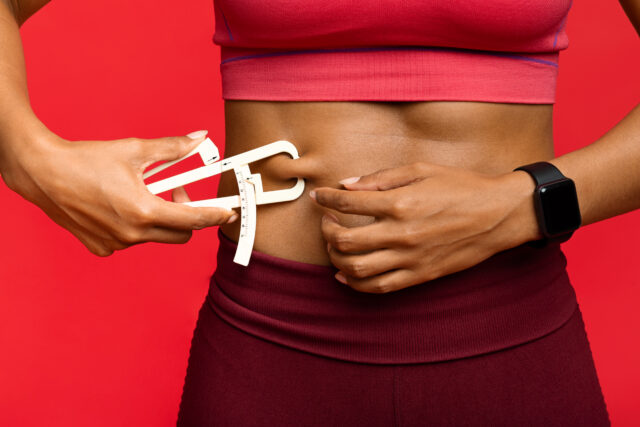In July, Olympic rugby player, Ilona Maher, took to TikTok in a viral video to respond to hate and discuss Body Mass Index for athletes. The professional athlete stated that while 170 lbs. out of her 200 total were lean muscle, she was still deemed overweight, with a BMI of 30. The post was funny, it was sassy, and it was vulnerable – she opened up about how she was embarrassed by her diagnosis when she first received it. While the video can be reduced to an athlete responding to a hate comment, it points out the very real limitations of BMI calculations and how they can affect athletes.
As athletic directors, ensuring the well-being of student-athletes extends beyond physical training and game strategies. It encompasses their mental and emotional health, which can be significantly impacted by how they perceive their bodies. Recent discussions have highlighted the potential adverse effects of BMI and weigh-ins on athletes’ body image and self-esteem, underscoring the need for a more nuanced approach to athlete health and fitness.
The Flaws of BMI in Assessing Athlete Health
Body Mass Index (BMI) has long been a standard metric used to assess body weight relative to height. However, its limitations are becoming increasingly evident, particularly in athletic contexts. BMI fails to distinguish between muscle and fat, leading to misleading classifications. For instance, a highly muscular athlete might be categorized as overweight or obese despite having low body fat. This flaw can result in unnecessary anxiety and unhealthy behaviors as athletes strive to fit into misleading BMI categories.
Psychological Impact of Weigh-Ins
Regular weigh-ins can exacerbate these issues by placing undue emphasis on weight as a primary indicator of fitness and health. The pressure to meet specific weight requirements can lead to unhealthy practices such as extreme dieting, dehydration, and eating disorders. The National Collegiate Athletic Association (NCAA) estimated that up to 30% of college athletes suffer from an eating disorder, compared to only 1% of the general population. This statistic highlights the detrimental impact that weight-focused assessments can have on young athletes.
Gender Disparities in Body Image Perception
Gender differences in body image perception further complicate this issue. A recent NCAA study revealed significant disparities between male and female athletes. While 68% of male athletes reported positive body image, only 45% of female athletes felt the same. Similarly, 53% of male athletes were happy with their weight, compared to just 35% of female athletes. These differences suggest that weigh-ins and BMI assessments may disproportionately affect female athletes, contributing to higher levels of body dissatisfaction and associated mental health issues.
The Role of Social and Athletic Pressures
Athletes often face conflicting pressures regarding their body image. In sports like wrestling and cheerleading, where weight categories and aesthetic standards are prevalent, the pressure to conform can be intense. Wrestlers may resort to drastic weight-cutting measures, while cheerleaders might feel compelled to maintain a certain physique to fit the sport’s aesthetic demands. Societal expectations regarding gender and body image, comments and critiques from coaches and teammates, and the extreme need for athletic improvement can lead to a distorted body image and a negative relationship with food and exercise.
Taking a New Approach
To support athletes’ physical and mental well-being, shifting the focus from weight and aesthetic-centered measures to more comprehensive health assessments is crucial. This includes considering factors like muscle mass, bone density, and overall body composition. Here are some strategies to consider:
- Implementing Comprehensive Fitness Assessments: Utilize metrics that account for muscle mass and body composition as an alternative to relying solely on BMI. Tools like bioelectrical impedance analysis (BIA) and dual-energy X-ray absorptiometry (DEXA) scans provide a more accurate picture of an athlete’s health.
- Fostering Positive Body Image: Promote a culture that values performance and health over appearance. Encourage athletes to appreciate their bodies for their capabilities rather than their conformity to certain standards.
- Providing Nutritional and Psychological Support: Ensure that athletes have access to nutritionists and mental health professionals who can help them develop healthy eating habits and address body image concerns. Regular nutrition, self-esteem, and mental health workshops can also be beneficial.
- Encouraging Open Communication: Create an environment where athletes feel comfortable discussing their concerns about weight, body image, and mental health without fear of judgment or repercussions.
- Tailoring Approaches by Sport and Individual Needs: Recognize that different sports and individual athletes have unique needs and pressures. Tailor your approach to support each athlete’s specific requirements, considering their sport, personal goals, and mental health.
By adopting these strategies, athletic directors can help mitigate the negative impacts of BMI and weigh-ins on athletes’ body image and self-esteem. The goal should be to foster an environment that prioritizes overall health and well-being, enabling our athletes to perform at their best both on and off the field.




